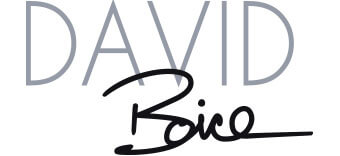In the Driver’s Seat: 2023 Reflections & 2024 Predictions
As the dust settles on the changing automotive landscape in 2023, it has become clear that last year was a crucible of transformation and invaluable insights. From shifts in consumer behavior to redefined dealership practices, it’s safe to say the industry will never be the same. The impact this year will have on the next is substantial, and dealers should continue adapting to the ever-evolving industry in order to stay ahead of the curve.
It’s time to discuss the top trends from 2023, and start to think about what the industry holds for us in 2024.
A Look Back: A Changed Landscape in 2023
- Taking the Online Experience, Offline: The once nice-to-have personalized online experience quickly became a cornerstone for dealer success – but what about in-store? 2023 saw the re-prioritization of creating custom experiences for anyone and everyone who walked through their dealership doors. This shift underscores the vital role of an integrated approach to customer engagement, creating a seamless transition between online and offline interactions.
- CRM Revolution: The traditional customer relationship management (CRM) communications reached their end in 2023. Automated responses filled with typos and generic content lost credibility and were swiftly abandoned by dealers, leaving a detrimental communication gap. Dealerships started to recognize the need for more savvy communication tools that emphasize personalization and resonate with the modern consumer.
- Manufacturer Mandates: Automotive saw a power shift as manufacturers enforced guidelines that if not strictly followed, carried a risk for dealers to lose substantial funding. These evolving dealer-manufacturer dynamics put a heavy emphasis on uniformity and compliance across brands and certified vendor programs.
- Revival of Retail: Prioritizing the analysis of ad spend for more effective lead generation and conversion practices has been reborn. A new focus on merchandising inventory through strategically connected marketing has given dealers critical insight into quality leads, and has proven the importance of merchandising initiatives for dealers.
- Max Controversy: With new AI, comes new controversy. Originally launched in 2021, Google’s Performance Max (PMax) digital advertising buying platform was met with mixed reactions. Since then, the concerns surrounding privacy and data security have only continued to grow. Critics argue that the platform’s extensive data usage raises privacy issues, causing unease over the potential for a sensitive information leak. Is the convenience worth the risk?
A Look Ahead: What’s in Store for 2024?
- Amazon Enters Auto: In 2024, the automotive industry prepares for Amazon’s expansion into car sales, potentially setting a new benchmark within the vehicle purchasing landscape. The influence of Amazon could redefine consumer expectations, as it did with other ecommerce categories, with a more desperate need for dealers to offer convenience, personalization, and efficiency in order to gain and retain a satisfied customer base.
- Electrifying Automotive: With the continued rise of electric vehicles (EVs), dealers should think to revamp their service coupons and offers. While traditional campaigns feature offers for services along the lines of oil changes, there is a new opportunity for dealers to adapt their strategy to incorporate incentives catered specifically to the unique needs of EV owners.
- Prioritizing Platforms: Automotive has historically been an industry of applications, until now. We are seeing a pronounced shift away from individual applications and multiple vendors, and a large priority being put on comprehensive all-in-one solutions that offer end-to-end capabilities. Holistic platforms simplify the experience on both the dealer and customer side, making them an invaluable tool in offering seamless marketing, purchasing, and maintenance journeys.
- Spam Tech Surge: Spam filtering technology is emerging as a top obstacle for dealers. With impacts on email deliverability and reporting, dealers need to diversify their communication methods and explore alternative channels to reach their customer base. A comprehensive marketing mix will ensure dealer messaging continues to reach the right eyes at the right time.
- Integrating AI: Artificial intelligence (AI) is continuing to grow and become a vital tool for dealerships. Dealers are beginning to integrate AI technology, including ChatGPT and AI communication tools, with their existing infrastructure to enhance customer interactions, streamline processes, and continue to push innovation in automotive. As AI continues to evolve, it is becoming an indispensable tool for dealers trying to get ahead in the modern auto landscape.
So, as we reflect on this past year and move into the next, it’s imperative to keep a pulse on where the auto industry is headed. The rapid integration and expansion of emerging technology underscores the desperate need for adaptability in dealership practices. Automotive is continuously proving to be an extremely dynamic industry full of opportunity: to innovate, to thrive, to forge your own path. Will you be ready to seize it?
David Boice
Team Velocity Co-Founder & CEO


